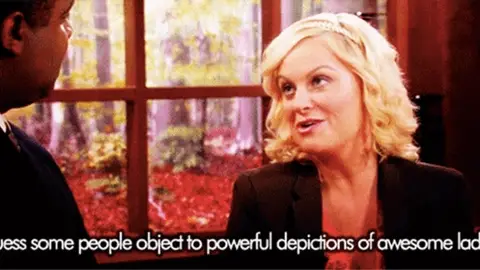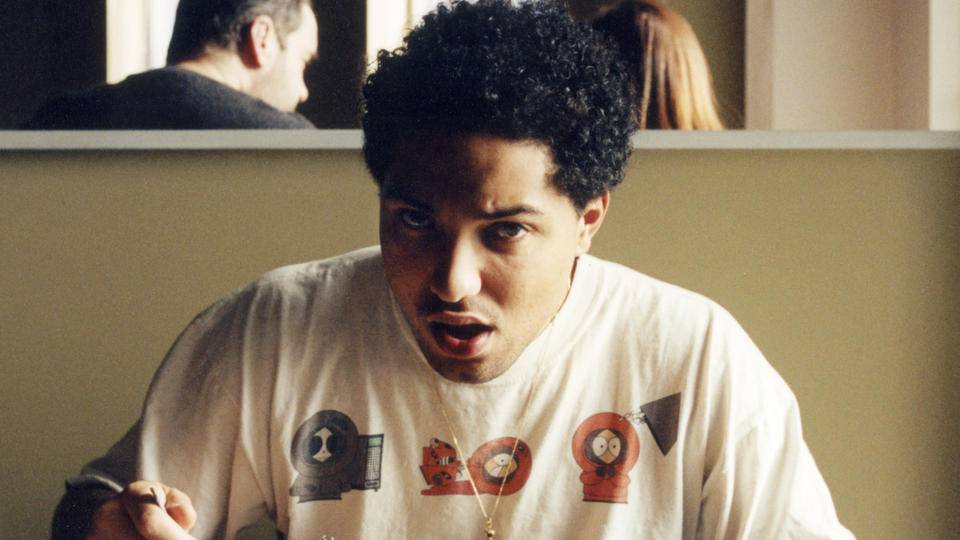How The 2017 General Election Could Affect Women

Whether you 'are' a woman or you just happen to know one - andhopefullythat makes all of us -it’s worth considering just how the 2017 general election coming up on June 8th could affect them.
There’s already talk that the election could see the highest ever number of female MPS in the UK, but while that’s exciting it’s also worth noting that 100 constituencies and the 7.5million people who live within them will have not even a single woman on their ballot papers come election day. We repeat: not one.
But it’s not just (the lack of) female representation in parliament that’s worth thinking about in this election, but the ways competing party policies will affect women, both for the better and the worse. Because whatever you or the bigmouths on Twitter say, gender inequality is still very much a thing and if you believe in a fair and democratic society, surely you believe in breaking down gender biastoo.
Has that got you thinking? Here’s how each of the major parties could affect the ladies of the UK if they were to gain power and enact their election manifesto.
CONSERVATIVE PARTY
•Not loving the gender pay gap? Neither are the Tories and they want to introduce policy that would require companies with over 250 employees to publish data on how much they pay men compared to women, and how much they pay black, Asian and minority ethnic employees. The idea is that by naming and shaming, companies will be inspired to do more to close the gender pay gap, which currently sees men earning more than women for similar roles, although it’s worth highlighting similar policy first came from the Lib Dems during their coalition with the Conservatives back in 2010.
•Getting more women into more powerful jobs is also a priority and the Conservatives also say they intend to work towards increased parity in the number of public appointments going to women and of women sitting on company boards.
•Then there’s a plan for tougher sentencing for people committing crimes related to domestic violence and abuse. This goes hand in hand with more support for victims of domestic violence, abuse and sexual abuse, which would come in the form of increased measures to avoid any undue distress during trials and also through a review of funding of women’s refuges.
•Next up they want to lead a global campaign for the education of women and girls, while expanding efforts to combat violence against people because of their faith, gender or sexuality.
•In the workplace the Conservatives want to see more flexible working environments to allow parents to make the most of shared parental leave. On top of this they will introduce 30 free hours of childcare for three and four-year-olds to help working parents.
•Then there’s a £5million fund for ‘returnships’, which will apparently help women rebuild their CVs after a career break (like taking time off to have babies) and a legal entitlement which would allow people to take a year off work to care for a loved one full-time. This is great in theory but has also has been criticised as potentially patronising by some bearing in mind that it’s usually women who are historically obliged to be the ones who give up their careers to do this, AND can be seen as a bit of an excuse to avoid the Tories having to dish out extra money for social care. Opponents argue that if the state fully supported people in times of illness or old age in the first place, family members wouldn’t have to make sacrifices to act as their carers.
•If you’re wondering what Theresa May’s done for women during her time as an MP, it’s worth noting that she was involved in the introduction of new laws protecting rights of domestic abuse and FGM victims as Home Secretary. She also supported the new, shared parental leave policies enabling parents to split 50 weeks maternity leave as they like.
•On the other hand, critics may point out her record of voting for cuts to child tax credits and women’s services. As Home Secretary, she has also received criticism for the privately run Yarl’s Wood detention centre for women seeking asylum in the UK, where some women have claimed to be sexually assaulted by guards. According to a report by the Independent, the Home Office under May has refused to release figures on how many women have been sexually assaulted inside the Bedfordshire centre - allegedly in case it damages the commercial interests of companies running it.
•The Conservatives’ benefits cuts, increased taxation and ‘austerity measures’ since 2010 are also said to have disproportionately affected women in the UK, with women bearing 86% of the impact compared to men bearing just 14% of this. Make of that what you will.
LABOUR PARTY
•If Labour wins this election they want a major overhaul to the Conservatives’ current approach to childcare in favour of things to help women back into work, like 30 free hours of childcare for all two-year-olds.
•Addressing maternity discrimination itself is a key focus, which they say will include an extension of maternity pay to 12 months. Then there’s the doubling of paid paternity leave to four weeks and a promise to help women back into work after maternity or carer breaks (plus a 17% increase in carer’s allowance) while protecting mothers from unfair redundancies too. They will also offer risk assessments for pregnant women in the workplace and review how women who suffer miscarriages are supported.
•In the workplace, Labour are committed to broader representation of women along with LGBT, disabled, black, Asian and minority ethnic employees. This extends to apprenticeships, which is good news for young people and young women in particular.
•Jeremy Corbyn is extending these ideals all the way up to the Labour government itself and is pledging a ‘government for women’ with at least 50% women to sit in his Cabinet. This seems like a good nod to better representation, but it’s still interesting to consider that Labour is yet to ever have a female leader themselves.
•Child benefits also to be reworked. The key point is that Labour would ditch the two-child limit currently in place on child benefits. This in turn means scrapping the controversial Conservative ‘rape clause’ where you have to prove you’ve been raped to conceive your third child to receive any child benefit.
•Next up is a big focus on women’s safety at both a national and global level. Nationally this would include appointing a commissioner to tackle domestic and sexual violence with tougher sentencing and conviction for crimes related to FGM and all forms of abuse. They also pledge to offer better funding for women’s refuges and rape crisis organisations.
•Protecting women’s rights to a safe and legal abortion is also very much on Corbyn’s agenda. This is particularly prudent for Northern Ireland, where abortion is still illegal. To address this Labour want to work more closely with the NIA to extend this right to women living there.
LIBERAL DEMOCRATS
•The Lib Dem manifesto says a lot about equality and fairness but isn’t particularly explicit when it comes to singling out gender inequality and social issues affecting mostly women. They do have policy pertaining to childcare but it’s pretty similar to Labour and emphasises a desire to help parents with more flexible working hours and in offering free childcare for all two-year-olds.
•That said, they do have a positive record and during the Conservative / Liberal Democrat coalition they did move to introduce mandatory pay gap reporting that ‘names and shames’ companies who don’t pay the sexes equally. This is something they want extended further to include BAME pay gaps too and is similar to policy the Conservatives themselves are supporting in their own manifesto.
•They also want more women on company boards and again, this is very similar to policy being proposed by the Conservatives.
•Similar to Labour, the Lib Dems want to get rid of the Tories’ controversial two-child benefits cap, including of course the controversial ‘rape clause’.
•Elsewhere they are focusing on young people of all genders, with the effects of Brexit and social policy like helping first time buyers and housing benefits for 18 to 21-year-olds taking precedence over more explicit policy relating to gender inequality.
•While it doesn’t mean this is policy they wouldn’t support wholeheartedly if they were in office, it seems a little bit of a shame not to have explicit details on what that policy might be. Looking back over the last decade, the Liberal Democrats have often been both a first-choice vote and a protest vote for many young people - and specifically for young, progressive women. By not exploring more policy pertaining to women, it does make you wonder if they are also perhaps missing the chance to harness the interests of a fairly large, fairly powerful segment of the electorate.
WOMEN’S EQUALITY PARTY
•As per their name, the WEP do exactly what it says on the tin and while they are a pretty minor party to date, their manifesto has bold and incisive ideals that look to increase gender parity in every element of our daily lives. The thinking being that as well as benefitting women, this type of policy benefits society as a whole, which if you hadn’t heard, is a key point that underpins feminism as a whole.
•As such, this means that the WEP manifesto takes on each and every major area of policy with women in mind and imagines just what measures are needed to increase equality for everyone. Interestingly, these are both practical, immediate measures and longer-term goals that would look to tackle stigmatisation that comes from the historical roles of women. As a result, they suggest a pretty major reimagining of our entire society.
•While it seems unlikely that they will win many seats (and it’s worth noting that MPs representing them are only standing in some constituencies) this manifesto is well worth a read – particularly if you’re interested in what a less passive, more active feminist society could look like and what is needed to make that happen. Read it RIGHT HERE - and cross your fingers some of the larger parties pick up on how strong some of these policy ideas are.
•Notably, party leader Sophie Walker is standing in the West Yorkshire seat of Shipley where she’ll come up against Tory MP and ‘male rights’ advocate Philip Davies, who is an outspoken critic of political correctness and what he describes as ‘zealous’ feminism. As Sophie has said: "Right now if you live in Shipley, your MP is best known in Parliament as a sexist whose favourite pastime is inventing long speeches to prevent other MPs from passing important legislation such as the provision of free hospital parking for carers and compulsory sex and relationships education in schools." Mic drop or what?
GREEN PARTY
•The Green Party have some pretty interesting policy ideas relating to women that come in the form of a ‘Gender Equality Manifesto’ - which you can READ HERE -that sets out 10 pledges and which they launched during a protest at the controversial Yarl’s Wood detention centre (see The Conservatives above).
•The NHS (in terms of women’s healthcare services, sexual health services and better treatment of NHS staff) is a big focus as is the protection of at-risk asylum seekers. But one of the most notable pledges in there is to stop discrimination and violence against women in the UK as a whole. This comes through various policy suggestions including the legalisation of prostitution, which would allow it to be regulated and so would hopefully help safeguard female prostitutes - a move that has been recommended by both the UN and Amnesty International in the past.
•Closing the gender gap underpins these pledges and the Green Party are looking at this from all angles. For young people in particular that means fighting age discrimination in terms of pay, introducing better paid internships for all, better access to good education and a universal basic income. There are also better rights for parents and more funding to be put into all forms of social care.
•Like the Lib Dems and Labour, the Greens want to scrap the Tory ‘rape clause’ when it comes to benefits for third children, and introduce better strategies for tackling domestic violence. In their manifesto, this includes improvements and protections for those who have been abused, especially when it comes to the process of prosecuting their abusers.
•A move to create diversity in Parliament that’s truly representative of society is also on the cards along with calls to protect the Human Rights Act and review all anti-discrimination legislation, with a particular view to provide better rights and protections to the trans community and those who identify as neither male nor female.
UKIP
•Ukip have some fairly controversial policy relating to women compared to previous manifestos, when frankly they’ve said very little about women’s rights at all, presumably to focus on their fairly singular priority of getting us out of the EU.
•But now that’s done, why focus on things like the gender pay gap when there’s more important things to do -like telling you what you can and can’t do with your body, for example.What you would have to look forward to under a Ukip government, it would seem, is legislation telling you what you aren’t allowed to wear and also enforced vaginal exams for schoolgirls! Naturally this is only if you want to wear a burka (soz, butyou’d no longer be allowed)or if you’re deemed ‘at risk of FGM’. So essentially if you’re not white and British and you happen to be female, you have a bunch of white, British men ready and waiting to govern your body in a bunch of different ways.What a time to be alive!
'Now check out all the stuff you probably should stop complaining about if you can't be arsed to vote on June 8th...'





